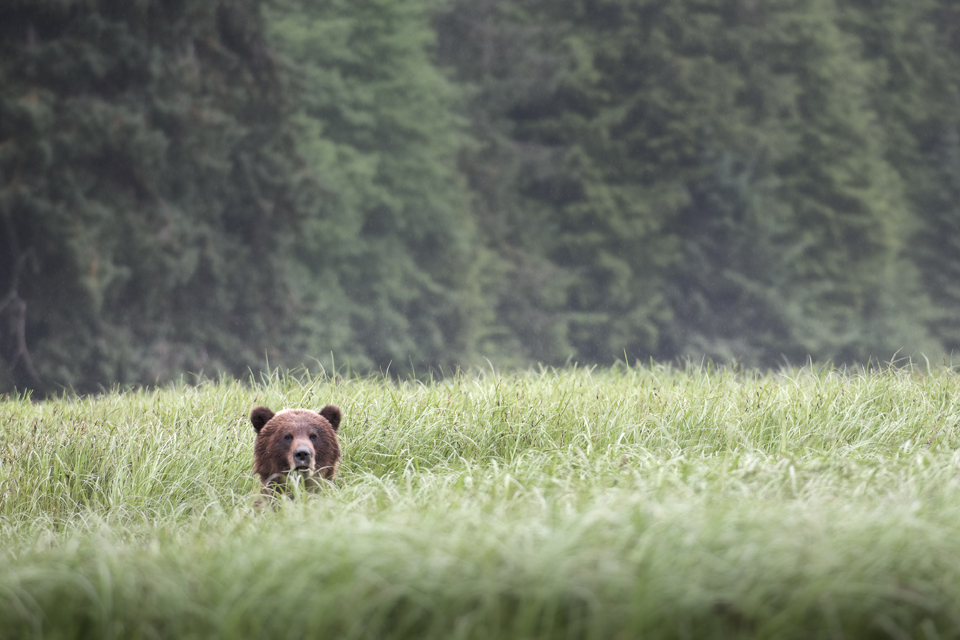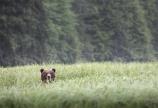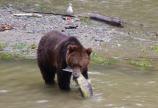Wildlife politics: a numbers game
- Anne MacLaurin

In his recent opinion letter published in Nature, UVic conservation scientist Chris Darimont applauded the provincial government’s ban on grizzly bear trophy hunting in BC. He described it as “an end to the co-opting of science to justify questionable policies.”
On a related topic, a group of five international conservation scientists, including Darimont as lead author, today published a scholarly opinion paper in the peer-reviewed journal Conservation Biology. Their review of case studies in four countries revealed that wildlife population sizes, trends and associated policies reported by some governments lack supporting evidence.
An era of open access data
“Questionable policies can be built on unreliable population data that inflate the numbers of large carnivore populations,” explains Darimont, a faculty member in UVic’s geography department and the science director at Raincoast Conservation Foundation. “An era of open access data and increasingly quantitative wildlife science allows unprecedented opportunity for researchers to ‘look under the hood’ of wildlife management. Such independent inspection can reveal the potential for politics to influence policy.”
The large carnivore case studies that inspired the researchers to coin the term “political populations” are: wolves in the US and Sweden; grizzly bears in Romania and Canada (specifically, BC).
We refer to ‘political populations’ when the data on wildlife populations are absent and a political interest is potentially being served.
—Chris Darimont, geography professor and conservation scientist
According to Darimont and two co-researchers—Paul Paquet, a senior scientist at Raincoast, and Kyle Artelle, a Simon Fraser University researcher and Raincoast biologist—the former provincial government publicly dismissed scientific concerns about the grizzly bear population, claiming healthy numbers despite a lack of supporting evidence.
Darimont and his colleagues are calling for academic research to expose political populations and the possibly risky policies built upon those numbers, as well as the potential political drivers behind both unreliable population data and associated policy.
He adds, “Increased scrutiny could pressure governments to present wildlife data and policies that are crafted by incorporating key components of science: transparent methods, reliable population data and intelligible decisions emerging from them both.”




